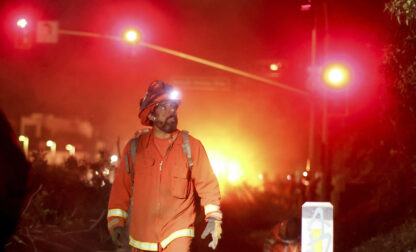For more than a year, AP reporter Leah Willingham investigated Mississippi’s massive autopsy backlog, gathering new data and personal stories revealing the terrible cost of the backlog which has traumatized families and jeopardized investigations.
The state’s public officials had talked previously about understaffing in the medical examiner’s office, but Willingham’s reporting went much further. She discovered data on how many cases were incomplete and found that coroners were waiting years — and in some cases more than a decade — for autopsy reports.
She conducted nearly 50 interviews, including three with public safety commissioner, and continued chasing the story even after relocating from Mississippi to West Virginia. District attorneys and coroners who trusted Willingham told her about specific cases and connected her to families who told deeply personal accounts. Her story led with the case of a man who admitted to fatally beating and shooting his 34-year-old wife, but claimed self-defense. The prosecutor and the family of the slain woman waited a year for the autopsy results that would contradict that claim and eventually lead to the man’s conviction.
Another woman told Willingham how she waited for three years for her brother’s autopsy report, fearing he’d died of a drug overdose only to find out that it was a heart attack.
Willingham’s reporting based on these accounts, data and documents showed Mississippi’s system long operating outside of accepted national standards for death investigations. “I knew it was bad,” Public Safety Commissioner Sean Tindell told the AP. “I didn’t know it was this bad. … Families deserve better.”
Willingham’s story,accompanied by Rogelio Solis’ photo,received strong play, including use by numerous television stations and other news outlets.








